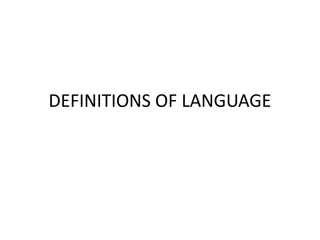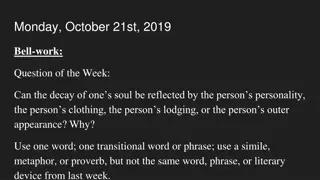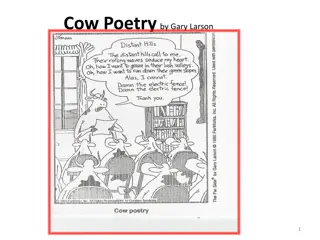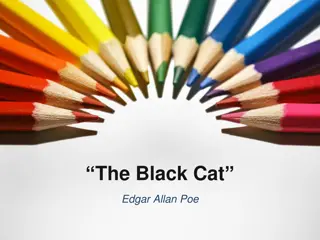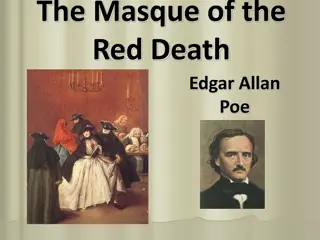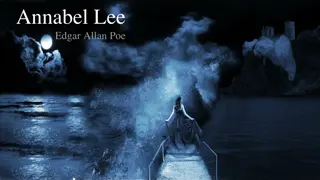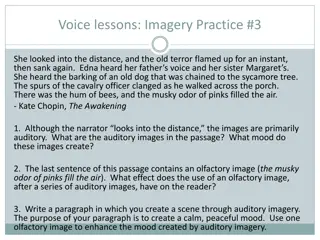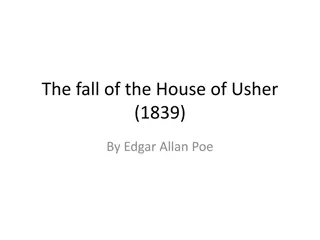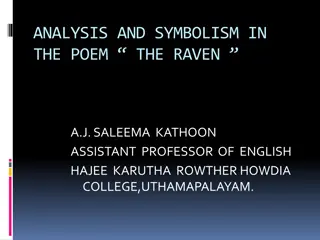Analysis of Symbols in Edgar Allan Poe's 'The Black Cat'
In Edgar Allan Poe's 'The Black Cat', symbols play a crucial role in highlighting themes of guilt, rationality, and humanity. The narrator's horrific actions are reflected in the buried ax, emphasizing the loss of rationality. The second cat's markings symbolize a lack of love and compassion, showcasing the narrator's moral deficiencies. Explore how these symbols deepen the disturbing narrative of cruelty towards animals and murder.
Download Presentation

Please find below an Image/Link to download the presentation.
The content on the website is provided AS IS for your information and personal use only. It may not be sold, licensed, or shared on other websites without obtaining consent from the author. Download presentation by click this link. If you encounter any issues during the download, it is possible that the publisher has removed the file from their server.
E N D
Presentation Transcript
Gothic Fiction Horror or Gothic fiction can also be "sensation" fiction, a popular genre in Poe's day. Sensation stories were designed to work on the readers' senses. The scandalous feelings and desires, commit dire acts, and find themselves in extreme situations. Violence, imprisonment, death, dismemberment, and live burial are meant to shock us into feeling. characters experience
It's one of Poe's shorter stories and one of his most disturbing, focusing on cruelty towards animals, murder, and guilt, and told by an unreliable narrator who's rather difficult to like. You can read 'The Black Cat' here.
The Black Cat was first published in August 1843 in the Saturday Evening Post. It s one of Poe s shorter stories and one of his most disturbing, focusing on cruelty towards animals, murder, and guilt, and told by an unreliable narrator who s rather difficult to like. You can read The Black Cat .
Symbols found in the narrator s horrible act of burying the ax in his wife s brain a word that emphasizes thinking more than the word skull would. In this act, the narrator has in effect extinguished his own rationality, as well as its chief human representative in his sphere. Further, when the brick wall is broken down, the black cat is found perched on the corpse s head, one more indication of the narrator s guilt (recalling the site of the wound) and its cause. Symbols of rationality and its defeat can be
Among the symbols of humanity of feeling is the second cat s marking. It has, in the narrator s phrasing, a large, although indefinite splotch of white, covering nearly the whole region of the breast. Moreover, the cat has, the narrator says, a habit of fastening its long claws in my dress to clamber, in this manner, to my breast. Finally, the cat will not let him sleep; he awakens with it on his chest: its vast weight [was] . . . incumbent on my heart! (Poe s italics). The repeated references to bosom breast, and especially heart point to the narrator s fatal deficiency of love and compassion
the Narrator's admitted alcoholism ("the Fiend Intemperance"), is apparently the chief cause of his many woes. However, this, too, is treated in a sardonic fashion by Poe. The Narrator explains that his attitude towards his wife and his beloved pets changed once he started drinking: I grew, day by day, more moody, more irritable, more regardless of the feelings of others. I suffered myself to use intemperate language to my wife. At length, I even offered her personal violence.
The common superstition about black cats, which his wife believes, is that they are bad luck witches in disguise good luck able to cast spells Which kind of animal did the narrator and his wife NOT have when they first got married? goldfish hamster rabbit monkey The police arrive at the narrator's house how many days after the murder? one three four two





